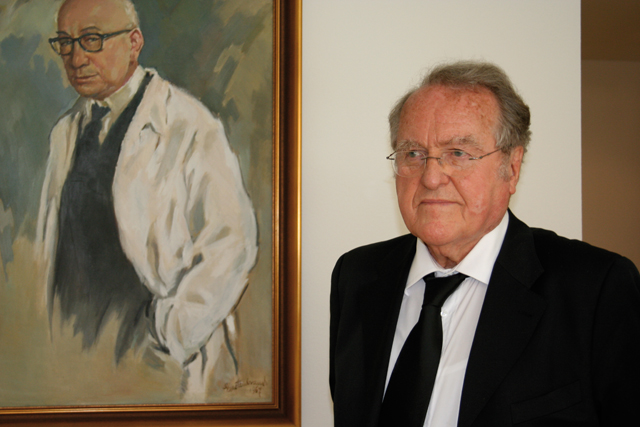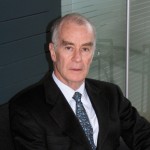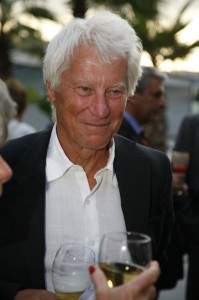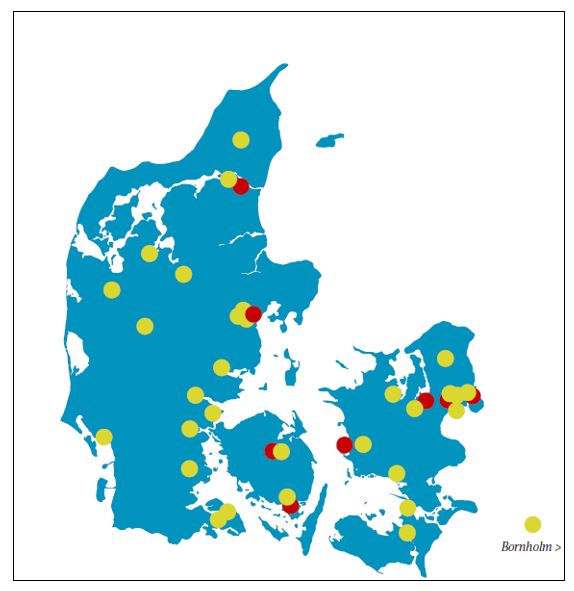It was a pleasure for me to represent the EAN at the 1st EBM meeting in held in Paris (La Salpétrière Hospital) on May 23, 2017. The objective of the EBM project is to preserve and to promote collections of archives related to the History of the various disciplines concerned by brain science (not only neurology, but mostly).
Tag
history
-
-
Top ArticlesForum
Neurological News from Denmark VI – the land of the 2nd EAN congress 2016: Pain Research in Denmark from a neurological perspective
April 1, 2016Pain - the unpleasant sensory and emotional experience associated with tissue damage - is usually not considered to be a neurological sub-disciplines like for example cerebrovascular diseases, demyelinating disorders, neururomuscular diseases, movement disorders, epilepsy, headache and clinical neurophysiology. -
Forum
Neurological News from Denmark V – the land of the 2nd EAN congress 2016: Clinical Dementia Research in Denmark
March 1, 2016Since the establishments of the first multidisciplinary memory clinics, based in neurology in Denmark more than 20 years ago, neurologists have taken increasing interest in diagnostic evaluation and follow-up of patients with dementia. -
Forum
Neurological News from Denmark IV – the land of the 2nd EAN congress 2016: Research in multiple sclerosis in Denmark.
February 1, 2016Denmark has a 100-year history of research in multiple sclerosis (MS), but as everywhere, the number of published studies has grown almost exponentially during the last two decades. -
Forum
Neurological News from Denmark III – the land of the 2nd EAN congress 2016: Cerebral Blood Flow Research – Danish Contributions throughout a Century
January 1, 2016Nearly a century ago – in 1920 – the renowned Danish physiologist August Krogh (1874-1949) received the Nobel prize in physiology and medicine for his work on the anatomy and physiology of the capillaries (1). -
by Eberhard Deisenhammer, archivist of the EFNS & Klaus V. Toyka, archivist of the ENS
-
After the Second World War, the German education system was organised in a decentralised fashion in order to facilitate a pluralistic control of research and education. Therefore, educational and funding systems exist in parallel, on the level of the regional political structure (state) where a specific university is localised, and on the level of funding by the central government and its Federal Ministry of Education and Research (BMBF).
-
Forum
Forum: Book Corner – The History of the World Federation of Neurology: the first 50 years
October 1, 2014This book reviews the history of the first 50 years of the WFN which was officially founded in 1957. One question immediately comes to mind: why 1957? There may be a debate about the “date of birth” of neurology, but everybody agrees that it was firmly established as a discipline by the first part of the twentieth century or even before that time. -
 by Franz Gerstenbrand
After the Second World War there was a collapse in neurology in Europe. The war divided the continent in two parts, in a Western influenced and in a Communistic part. Austria in the middle was a neutral… Continue Reading
by Franz Gerstenbrand
After the Second World War there was a collapse in neurology in Europe. The war divided the continent in two parts, in a Western influenced and in a Communistic part. Austria in the middle was a neutral… Continue Reading -
 by Wolf-Dieter Heiss
I attended as a participant several of the early EFNS regional meetings and congresses: the first EFNS regional meeting 1993 in Berlin – a small event with 1000 participants, the 2nd EFNS Congress in Rome 1996 where… Continue Reading
by Wolf-Dieter Heiss
I attended as a participant several of the early EFNS regional meetings and congresses: the first EFNS regional meeting 1993 in Berlin – a small event with 1000 participants, the 2nd EFNS Congress in Rome 1996 where… Continue Reading -
This, our last Presidents’ Page, marks the foundation of the EAN. It is adapted from our longer editorial in the European Journal of Neurology which will be the journal of the EAN.
-
 by Eberhard Deisenhammer
A long living institution or society needs an archive, especially if the officers of such a society, out of democratic reasons, turn over rapidly (e.g. members of the management committee can only be elected twice for a… Continue Reading
by Eberhard Deisenhammer
A long living institution or society needs an archive, especially if the officers of such a society, out of democratic reasons, turn over rapidly (e.g. members of the management committee can only be elected twice for a… Continue Reading -
Eur J NeurolForum
Forum: Historical moments… Creation of the European Journal of Neurology
May 1, 2014A new era of neurology in Europe will start soon. In order to remember those historical moments that were relevant for EFNS and ENS and finally led to the foundation of EAN, the editors asked senior European neurologists to tell… Continue Reading -
The derivation of the word Europe is uncertain. It may come from a Phoenician word meaning “the west” or another meaning “of a white or fair aspect”. It has nothing to do with the mythical maiden Europa who was abducted from Phoenicia (the region around modern Lebanon) by Jupiter disguised as a bull: she rode on his back to Crete where in due course she gave birth to Minos. Homer used the word Europe to define the area around Greece.
-
Dawn of a new era: Gösta Hultquist’s thesis of carotid artery disease 1942 by Bo Norrving A patient with a carotid TIA – emergency diagnosis and neuroimaging – urgent start of medical therapy – carotid ultrasound showing a severe carotid… Continue Reading
Newer Posts


